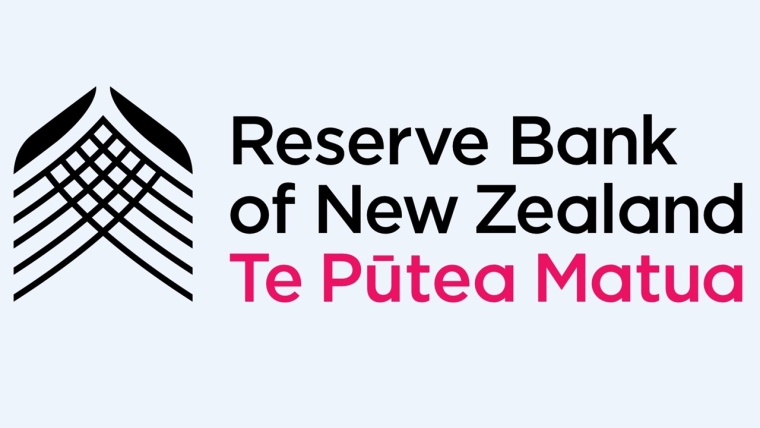
The Reserve Bank is taking the opportunity of its briefing to incoming Finance Minister Nicola Willis to highlight key areas it wants to secure funding for in its next five-year funding agreement between its Governor Adrian Orr and Willis.
The central bank's current funding agreement provides funding until June 30 next year. The Reserve Bank notes in its briefing to the incoming minister, dated November 27 last year but released on Wednesday, that it and the Treasury are in the early stages of planning for the next five-year funding agreement, to be entered into from July 2025.
"This will encompass both operating expenditure and, for the first time, capital expenditure. Our dividend policy and balance sheet are potentially relevant considerations for this discussion," the Reserve Bank says.
"Wwe have a significant programme of work underway that will need to be rolled over into the new agreement. This work includes legislated change (the Deposit Takers Act and Depositor Compensation Scheme), investment in our information, data and analytics strategy, and improvements to our digital and cyber resilience. The capital expenditure required for significant infrastructure projects – the refurbishment of 2 The Terrace and Project Waitoa [developing and implementing new vaulting and cash processing infrastructure] – will need to be included in the next funding agreement."
Interest.co.nz reported last year the Reserve Bank had doubled staff numbers over five years to 510, with its annual personnel costs rising to $80 million from $32 million in 2018. The significant increase in full-time equivalent staff and personnel costs came as the central bank and prudential regulator stepped up the oversight of banks, insurers and non-bank deposit takers such as finance companies, credit unions and building societies, and saw its responsibilities extended through the likes of the Reserve Bank of New Zealand Act 2021, and the Deposit Takers Act.
The Reserve Bank's June 2020 five-year funding agreement with the Government provides funding from 1 July 2020 to 30 June 2025 of $640 million. That's almost double the $324 million over the five previous years. However, an additional funding request was made to former Minister of Finance Grant Robertson for the last two years of the current five-year agreement due to "new legislative requirements and required investment."
Cabinet agreed to a $79 million increase last August. This increase came after the Reserve Bank had sought an increase of $138.361 million, which Treasury thought was excessive, saying instead the Reserve Bank should receive $58.049 million, or potentially $79.253 million.
Digital and cyber resilience
In its briefing to Willis the Reserve Bank talks of a need to improve its digital and cyber resilience, and data and analytics strategy. Furthermore its offices at 2 The Terrace, Wellington are "in urgent need of refurbishment to ensure the safety and well-being of staff due to encapsulated asbestos."
"This is being dealt with in two stages. The first stage is to progress the delivery of a new vaulting and cash processing solution (Project Waitoa). The second stage will commence in the 2024-25 fiscal year, with capital expenditure to be agreed for that year, and impact the next funding agreement. This significant programme of work will need to be rolled over into the new funding agreement in 2025," the Reserve Bank says.
The Reserve Bank also says there's a critical need to continue investing in its information, data and analytics plus cyber security.
In information, data and analytics, the Reserve Bank wants to address risks around privacy and enable data-driven decision making.
"This supports critical business-as-usual work in the [Reserve Bank's] economics department, e.g. delivering high quality research for the Monetary Policy Committee, the financial stability group, e.g. data driven analysis for policy and supervisory decisions, as well as key projects (the Deposit Takers Act and Depositor Compensation Scheme, and Central Bank Digital Currency) and our leadership of the Council of Financial Regulators, enabling us to make better decisions faster and deliver on our mandate efficiently."
In cyber security the Reserve Bank says it needs to address key vulnerabilities and operational, legal and reputational risk, plus digital capability and technology to; "build the necessary tools and systems to improve operational efficiency, build resilience and reduce risk – including reducing our reliance on manual processes and improving our tools for compliance, reporting, collaboration, analysis, and portfolio performance and optimisation."
Of Project Waitoa, the Reserve Bank says this addresses risks associated with its vaulting and processing infrastructure.
"It is a high-risk project, subject to the Treasury’s better business case process. The capital expenditure will be requested in the 2024/25 fiscal year."
The Reserve Bank notes it doesn't receive appropriations through the central government budgetary process to cover its operating expenses. Instead it has the five yearly funding agreements.
*This article was first published in our email for paying subscribers. See here for more details and how to subscribe.
3 Comments
If it has more oversight duties it needs more staff. 510 in five years, averaging ~100/year. That is a lot extra. There was also the hiring of 5 or 6 spin doctors in the last five years (article in interest?) Are that many really necessary?
Instead of asking for more funding for their projects, perhaps they (along with our politicians) could just look across the ditch for a few answers:
The Reserve Bank's quarterly statement on monetary policy for February, released on Tuesday, noted a link between unaffordable housing and Australia's high population growth pace.
Yeah its not bloody rocket science is it…

We welcome your comments below. If you are not already registered, please register to comment
Remember we welcome robust, respectful and insightful debate. We don't welcome abusive or defamatory comments and will de-register those repeatedly making such comments. Our current comment policy is here.